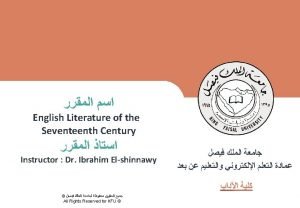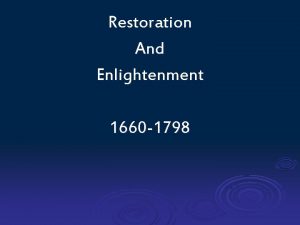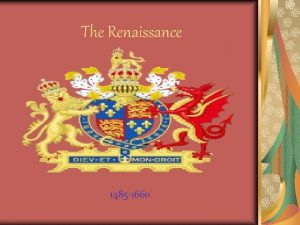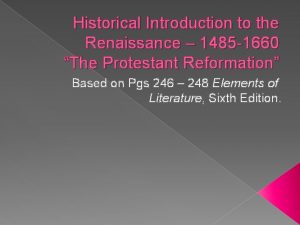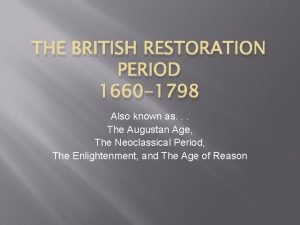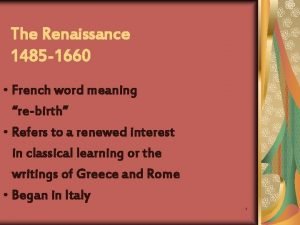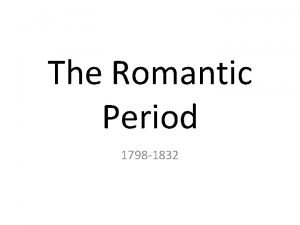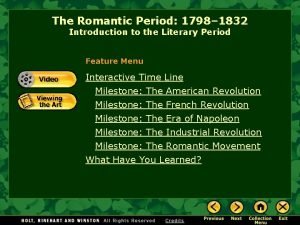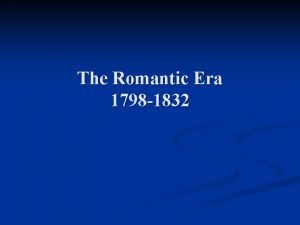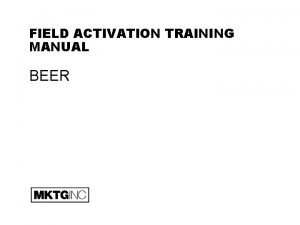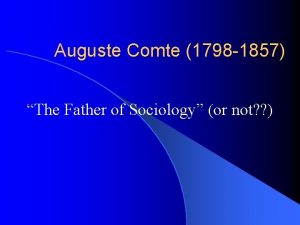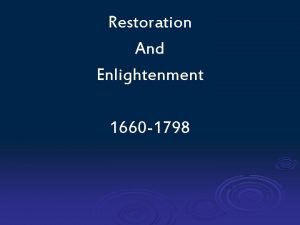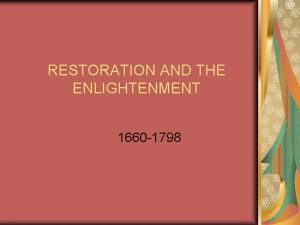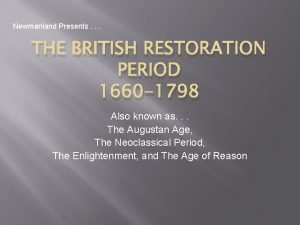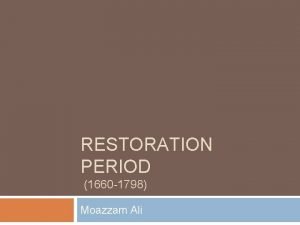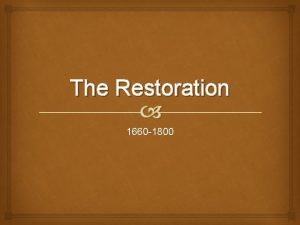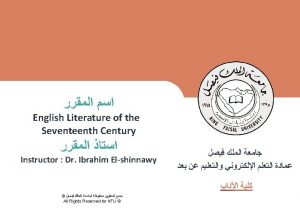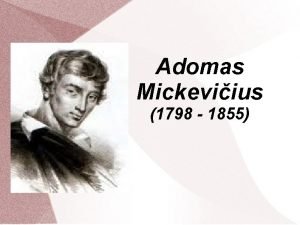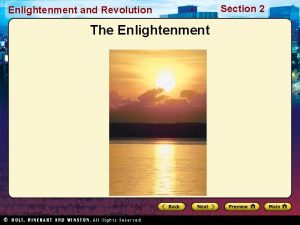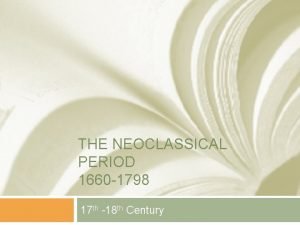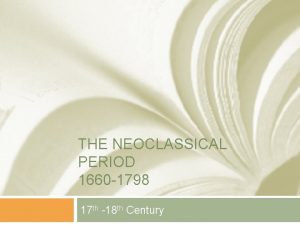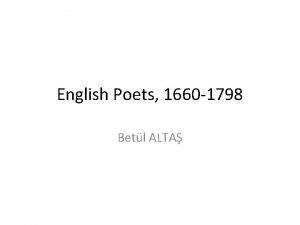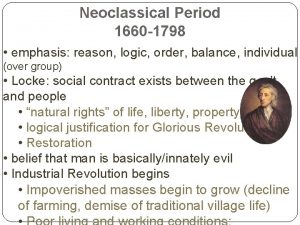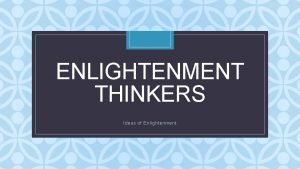Restoration And Enlightenment 1660 1798 The Restoration Refers

















- Slides: 17

Restoration And Enlightenment 1660 -1798

The Restoration Refers to the restoration of the monarchy in 1660 Charles II - spent exile in France, patron of arts and sciences George III - suffered from mental illness, ruled for 60 years, political blunders resulted in the loss of the American Colonies

The Enlightenment A philosophical movement that emphasized natural rights of life, liberty and property Age of Reason Sir Isaac Newton - order, balance, logic & reason, scientific inquiry was applied to everything from farming to politics

Writers, artists, politicians, etc. , gathered in coffeehouses to exchange ideas, conduct business, and gossip

Improvements Living conditions and changes in ways of life Dramatic advances in agriculture Breeding advancements yield larger animals Steam power

Industrial Revolution - changed way of life for all Women and children labored long hours with low pay

By the end of the period, a mass of restless, impoverished workers had grown.

Language Samuel Johnson - Dictionary of the English Language (1755) Robert Lowth - A Short Introduction of English Grammar Based on Latin - rules often proved inappropriate for English Overseas colonization brought new words and increased differences in spoken English

Literature Neoclassicism Stressed balance, logic, sophisticated wit, and emotional restraint Birth of the novel - Robinson Crusoe Toward the end of the period, poetry began to reflect themes close to the human heart - the first hints of Romanticism

Satire 18 th Century - The Golden Age of Satire

Satire A literary technique that mixes criticism with humor Uses laughter as a weapon, usually to encourage social reform

Two Types of Satire Horatian satire - playfully amusing, seeks to correct a vice or foolishness with gentle laughter Juvenalian satire - darker kind of laughter, bitter and criticizes corruption or incompetence with scorn and outrage

Comments on and criticizes society, makes fun of a topic by making it seem ridiculous News commentators, political cartoonists, comedians, screenwriters, songwriters The Simpsons - educational system, sibling rivalry, violence on TV, sports Saturday Night Live, Mad TV

How to Recognize Satire Author may clue the reader in that he is writing satire Author may cite previous satires Satiric subject matter and its treatment Concrete, topical, and personal subjects Often alludes to the gossip of the moment Freshness is important - no one cares 50 or 100 years later

Style is easy to distinguish Contains cruel and “dirty” words Contains comic words and terms Uses conversational and nonliterary language Tries to produce the unexpected

Weapons of Satire Paradox Antithesis Parody Anticlimax Obscenity Violence Vividness Exaggeration Irony

Final Test for Satire The reader feels a mixture of amusement or contempt
 Characteristics of puritan age
Characteristics of puritan age Restoration and enlightenment period
Restoration and enlightenment period Renaissance (1537 ad - 1660 ad)
Renaissance (1537 ad - 1660 ad) Renaissance 1485 to 1660
Renaissance 1485 to 1660 Renaissance (1537 ad - 1660 ad)
Renaissance (1537 ad - 1660 ad) Daniel defoe (1660-1731)
Daniel defoe (1660-1731) Daniel defoe was born in 1660 into a family of dissenters
Daniel defoe was born in 1660 into a family of dissenters 1660 time period
1660 time period Mikroskop 1660
Mikroskop 1660 Mikroskop 1660
Mikroskop 1660 Old french word that literally means “rebirth.”
Old french word that literally means “rebirth.” The english renaissance 1485 to 1660
The english renaissance 1485 to 1660 Romantic period 1798 to 1832
Romantic period 1798 to 1832 The era of change 1798-1832
The era of change 1798-1832 Romantic period 1798 to 1832
Romantic period 1798 to 1832 The romantic period 1798 to 1832 summary
The romantic period 1798 to 1832 summary Guinness the 1798 limited edition
Guinness the 1798 limited edition Father of sociology
Father of sociology
